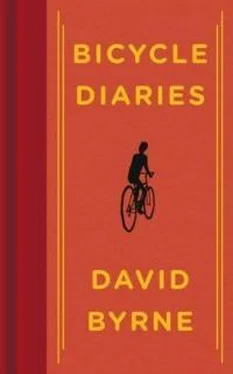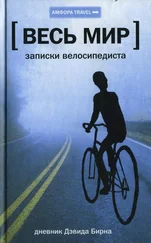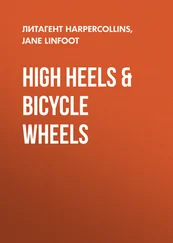Is this fair? Not exactly, but neither was the appropriation of the land years ago by the whites. Justice, some might say, was simply delayed. If I can steal from you, and you are powerless to reclaim your property or land, even for generations, does it then at some point legally and morally become mine? At some point does the passage of time itself transfer ownership? What point might that be? Ten years? A hundred? A thousand?
Most likely any ultimate attempt at justice will be skewed. Maybe absolute justice, like absolute anything, rarely exists except in mathematics. In Zimbabwe whites will be forcibly removed, improved land will sometimes sadly go unused, and some reclaimed land will inevitably be wasted by the new owners, unaccustomed as they might be to managing such a resource. There will most likely be unscrupulous landgrabs and struggles for property among the new owners. But maybe, after some time, if things don’t get completely out of hand, a kind of balance will be achieved. Some will argue that not even a single white person belongs on this land, and they have a point. But with some compassion and forgiveness perhaps a few of the descendants of the thieves might find a place and a home and even some honor and respect. Almost all of us, of every race, have something to be ashamed of in our history. Sometimes it is close by, within memory, a constant reminder. Sometimes it happened generations ago, and we feel no personal sense of guilt or obligation, but then things change and what was forgotten or buried comes back to life.
I would argue that it is increasingly hard for anyone anywhere to say, “I belong here and you don’t.” Human migrations have never stopped, they’re endless, and mingling is tough, but it can often be fruitful—a source of innovation and creativity.
Will there be a bloody scramble for those beautiful ’50s modernist homes in the Vedado district of Havana at some point? Israel, Palestine, South Dakota, Tibet—all involve some appropriation of land by one group from another. Does one theft of land or property inevitably prophesize a reciprocal theft? Is delayed justice inevitable? Is it even justice?
When does the clock for justice and reparation run out, if ever? Can the victims of the Stasi demand some compensation? Can German Jews reclaim their houses in Leipzig and in Berlin (those that are still standing)? Can the descendants of Russians exiled since the revolution return and claim their beautiful homes in St. Petersburg? The Chinese multitudes, tossed out of their family homes during the cultural revolution by Red Guard hoodlums—compounds where they’d lived for generations—can they now return? Can everyone simply make history go backward when it’s their time in power, and does the associated violence constitute justice?
Is anyone native to anywhere? I think, in most cases, not. And maybe, somehow, that might be where the answer lies.
Parallels
Here is a frame from Hitler’s Secretary , a documentary that is pretty much one long contemporary interview with that woman. It is a wonderful example of how we humans can deceive ourselves, delude ourselves, and blinker ourselves.

Now, of course, she realizes what she had willed herself not to see or admit, just as today many people (fewer now than previously) refuse to admit that what the Bush administration was doing was unethical, unconstitutional, maybe even illegal because their buttons were pushed with words like national security, patriotism, terrorism, democracy, small government, free market . . .
Our ability to live in denial and hide from the facts in front of our faces is obvious. I can’t possibly believe that people can perpetrate the horrors they do without justifying them to themselves, or better yet denying their existence entirely—or, as Hitler’s secretary does, claiming that some eggs inevitably get broken to make an omelet. I think someone in the Bush administration may have used the same metaphor. It seems to me that this capacity for denial must have evolved out of a survival mechanism—some mental ability that helps one to focus and to exclude unhelpful news and distracting or diverting information when on the hunt or when courting. The skill and complexity of denial behaviors may have become absolutely necessary, at least at the time that they are needed—though sometimes later another point of view can be entertained and the truth confronted.
Far from being a fault, a deficiency, this capacity for denial was, and still is, a much-needed survival mechanism—one that, perversely, makes us human. Do animals practice denial? Would a dog say, “Who, me, shit on the rug, are you kidding?” and, more important, would a dog be able to convince himself that he didn’t shit on the rug? I think animals can indeed be tricky and deceitful, but whether they can deceive themselves . . . well, we’ll probably never know. Maybe it is this mental skill set that allows us to be as single-minded, and therefore as successful, as we often are.
The fact that demagogues, advertisers, marketing experts, and religious leaders have learned to tap into these powerful innate instincts and behaviors is often unfortunate, but maybe inevitable. Their exploitation of our abilities is regrettable because they are using them exclusively for their survival. Our own adaptation is being turned against us. However, since it is natural that we have these abilities, maybe it is also natural that they be exploited and that some folks will inevitably become more skilled at the art of exploitation and manipulation than others.
However, as powerful and irresistible as buzzwords and the like are, it is sometimes possible to resist them, or at least to be aware when they are being employed—whether for better or for worse. One can at least make a decision as to whether one wants to be or will allow oneself to be manipulated and/or self-deluded, or not. There are times when a certain amount of self-delusion is “good”—when it allows us to accomplish a necessary task, or create something unlikely or new. (If I’m in the middle of writing a song I don’t want blunt criticism, for example.) It might even allow us to have the nerve to speak out, and in those cases denial—of a sort that gives us hope—might be deemed worthy.
The two biggest self-deceptions of all are that life has a “meaning” and that each of us is unique. One can see that evolving a built-in obscuring mechanism for those depressing and inevitable insights might be of practical use. Okay, maybe in a sense we are unique: the huge numbers of available combinations of traits, propensities, body types, and experiences that make up each of us is unimaginably large. Our variety is immense, but still it must be restricted within certain boundaries or we wouldn’t be able to recognize ourselves as types at all. What we are is somehow simultaneously “infinite,” but always similarly shaped. Almost infinite variety within severely restricted limitations.
Maybe what we think of as self, of us as individuals, of each of us with unique personalities and character, also exists in dogs, and might even extend down the food chain as far as insects. Insects with character and personalities? Why not? Why stop with doggies? An insect might be just like me. I, what I call I, might not be unique after all. The range of possible combinations of character traits might extend both up and down the evolutionary tree. There might also be just as many personalities in each species as there are among us humans. Our inner policeman says to us, “don’t even think that” when we stray into a forbidden thought zone like this and begin thinking thoughts that might drive us crazy or inhibit much-needed action—thoughts like, Maybe I’m not unique at all. He sometimes says it for our own good—to keep us from going insane and to allow us to do the things we need to do. As a species we have to have our little delusions.
Читать дальше










